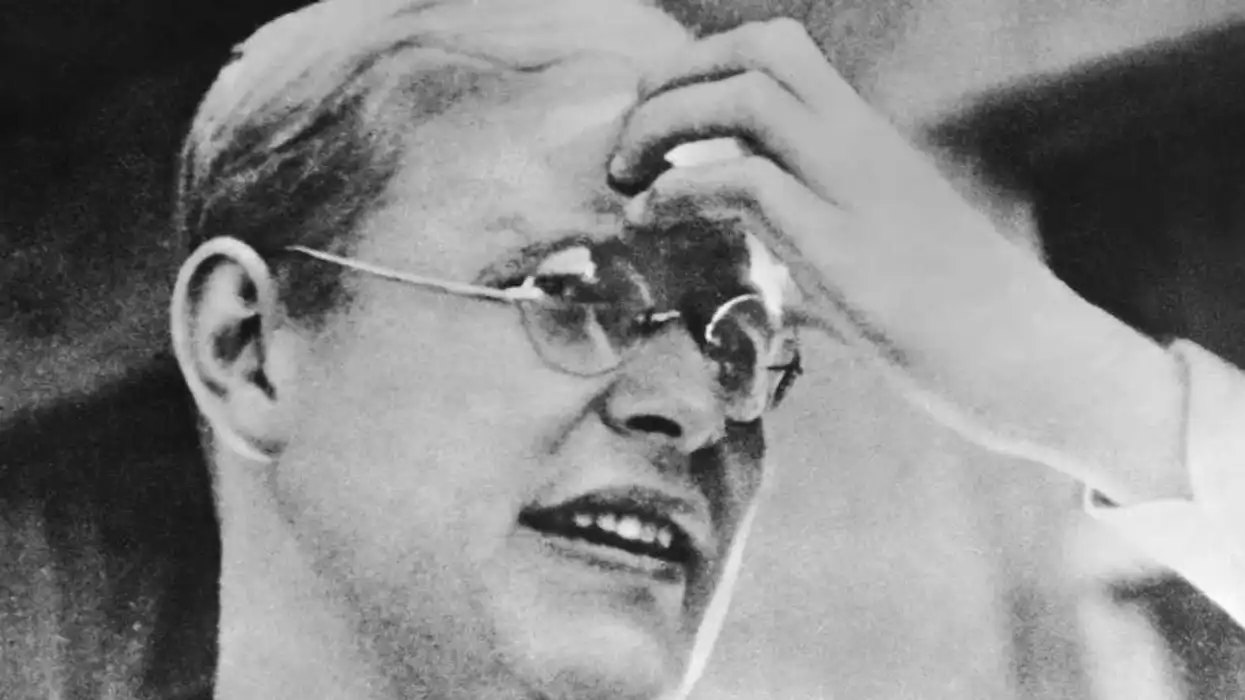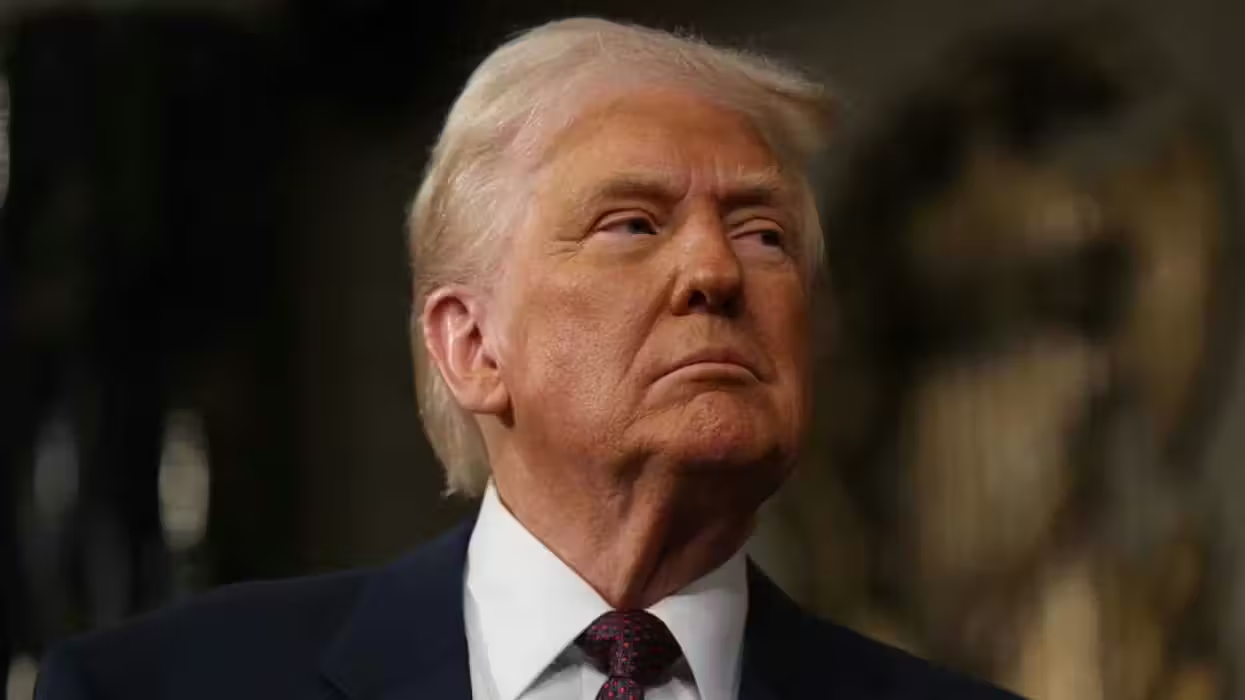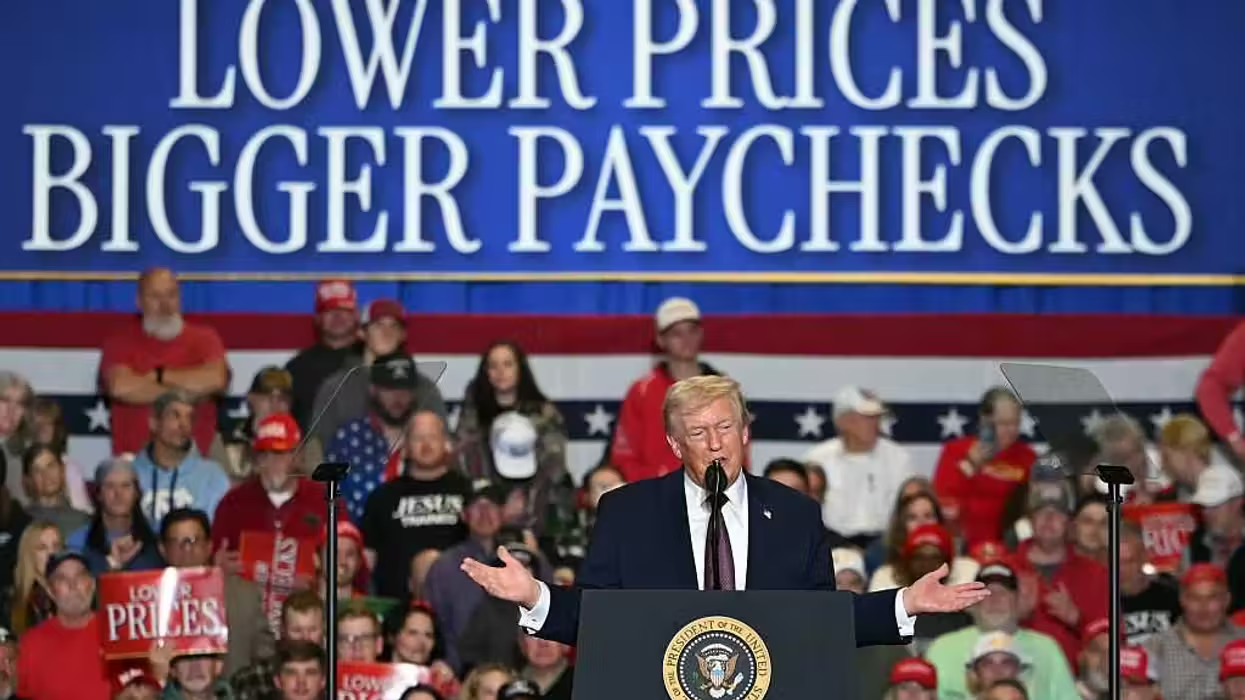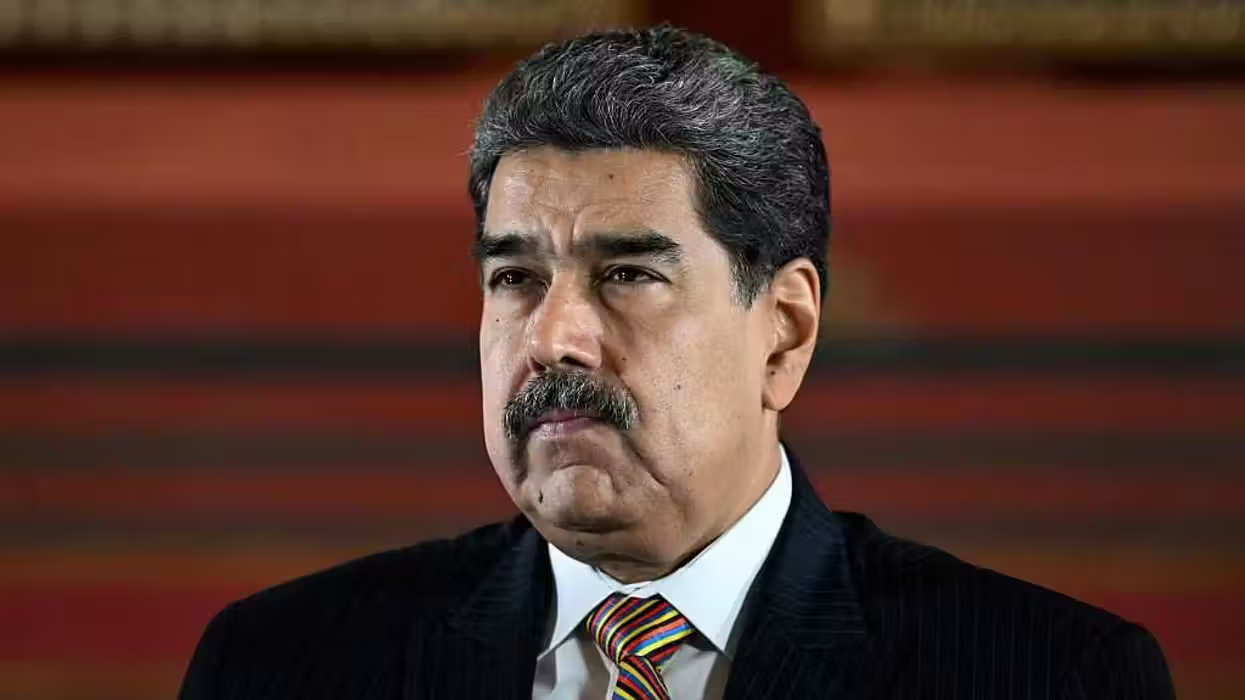© 2026 Blaze Media LLC. All rights reserved.
"Congress made a legal mistake while rushing through the health law. Now it's come back to haunt the administration."
 Here's an idea: when the Supreme Court holds their five-hour long oral arguments on The Patient Protection and Affordable Care Act, perhaps they could discuss what Jonathan Adler and Michael Cannon refer to in the Wall Street Journal as "a major glitch that threatens its basic functioning."
Here's an idea: when the Supreme Court holds their five-hour long oral arguments on The Patient Protection and Affordable Care Act, perhaps they could discuss what Jonathan Adler and Michael Cannon refer to in the Wall Street Journal as "a major glitch that threatens its basic functioning."
The two authors even claim that the aforementioned "glitch" is so huge that the Obama administration is trying to fix it by rewriting the bill without involving Congress.
What's the "glitch"? Adler and Cannon explain:
The Patient Protection and Affordable Care Act offers "premium assistance"—tax credits and subsidies—to households purchasing coverage through new health-insurance exchanges. This assistance was designed to hide a portion of the law's cost to individuals by reducing the premium hikes that individuals will face after ObamaCare goes into effect in 2014. (If consumers face the law's full cost, support for repeal will grow.)The law encourages states to create health-insurance exchanges, but it permits Washington to create them if states decline. So far, only 17 states have passed legislation to create an exchange.
This is where the glitch comes in: ObamaCare authorizes premium assistance in state-run exchanges (Section 1311) but not federal ones (Section 1321). In other words, states that refuse to create an exchange can block much of ObamaCare's spending and practically force Congress to reopen the law for revisions. [Emphasis added]
The Obama administration wants to avoid that legislative debacle, so this summer it proposed an IRS rule to offer premium assistance in all exchanges "whether established under section 1311 or 1321." On Nov. 17 the IRS will hold a public hearing on that proposal. According to a Treasury Department spokeswoman, the administration is "confident" that offering premium assistance where Congress has not authorized it "is consistent with the intent of the law and our ability to interpret and implement it."
As the authors point out, the bill's supporters shouldn't be that confident. The text of the law is pretty clear. Furthermore, without Congressional authority, the IRS is impotent in regards to dispensing credits or spending money.
But then there's the question of "Congressional intent," right?
"Law professor Timothy Jost suggests that since ObamaCare requires all exchanges to report information about premium assistance, and it would be silly to impose that requirement on federal exchanges if their enrollees were not eligible, that shows Congress could not have intended anything but to provide assistance in federal exchanges," Adler and Cannon write. "At least, he argues, there's enough ambiguity here about Congress's intent that federal courts will permit the administration to resolve it."
Contrary to what Jost claims in the above, Adler and Cannon point out that the Supreme Court has limited such deference to cases where the text of the law, rather than intent, is ambiguous. In the case of the health care bill, the language is quite clear.
But why would they have written the bill like this? Let's recap how Congress and the White House went about deciding how the nation's health care should work:
The health law's authors in Congress deliberately chose to pass the bill with known imperfections and to use the reconciliation process to make only limited amendments. Writing a perfect bill would have required too many votes and risked failure. If what they passed was an imperfect bill with no premium assistance in federal exchanges, then that is what Congress intended.And there are plausible reasons why Congress may have wanted to limit assistance to state-run exchanges—including encouraging states to create exchanges so that the federal government doesn't have the burden.
Supporters of ObamaCare, including George Washington University's Sarah Rosenbaum, have argued that nobody will have standing to challenge the IRS rule in court. That's not the case.
Under the law, employers must pay penalties when their employees receive premium assistance—a measure designed to encourage employers to keep offering coverage. Any employer whose employees receive premium assistance through a federal exchange would therefore suffer harm from the IRS rule and would have standing to challenge these illegal tax credits and outlays.
Public-interest lawyers could file suit as soon as the IRS rule becomes final and they find an employer that will be harmed. Any firm that doesn't offer health benefits and that employs lots of full-time, low-skilled, young workers in a state that fails to create an exchange should suffice. A successful challenge would block the law's employer mandate in that state.
In addition, under the Congressional Review Act, a simple (filibuster-proof) majority vote in each chamber of Congress could send to President Obama's desk a resolution blocking this IRS rule. Even if Mr. Obama vetoed the resolution (taking personal responsibility for this assault on the rule of law), a future president could still rescind the rule. Quite a perilous situation in which to leave the president's signature accomplishment.
To summarize, neither supporters nor critics of the universal health care bill are happy with its final outcome. The administration wants to fix what they don't like in their own way and ignore Congress in the process.
And this shouldn't surprise anyone. It is just a natural extension of the "We Can't Wait" mentality. As reported earlier on The Blaze (via Politico) consider what the recently-demoted Bill Daley said:
“On the domestic side, both Democrats and Republicans have really made it very difficult for the president to be anything like a chief executive,” Daley says. “This has led to a kind of frustration.”The president’s solution? “Let’s figure out what we can do [without Congress] and push the envelope on some of these things,” Daley says.
"Let’s re-emphasize what powers we have! What we can do on our own! Push the envelope!"
Although one could describe ignoring Congressional authority as "pushing the envelope," more appropriate terms might be applied (unlawful and unauthorized immediately come to mind).
Want to leave a tip?
We answer to you. Help keep our content free of advertisers and big tech censorship by leaving a tip today.
Want to join the conversation?
Already a subscriber?
more stories
Sign up for the Blaze newsletter
By signing up, you agree to our Privacy Policy and Terms of Use, and agree to receive content that may sometimes include advertisements. You may opt out at any time.
Related Content
© 2026 Blaze Media LLC. All rights reserved.
Get the stories that matter most delivered directly to your inbox.
By signing up, you agree to our Privacy Policy and Terms of Use, and agree to receive content that may sometimes include advertisements. You may opt out at any time.






